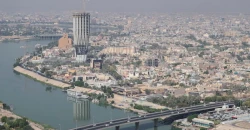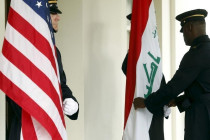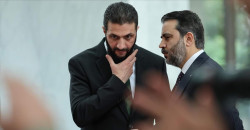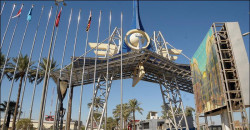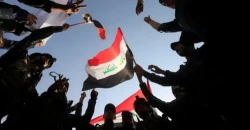Iraqi delegation hits Damascus again: Beyond a diplomatic reset?
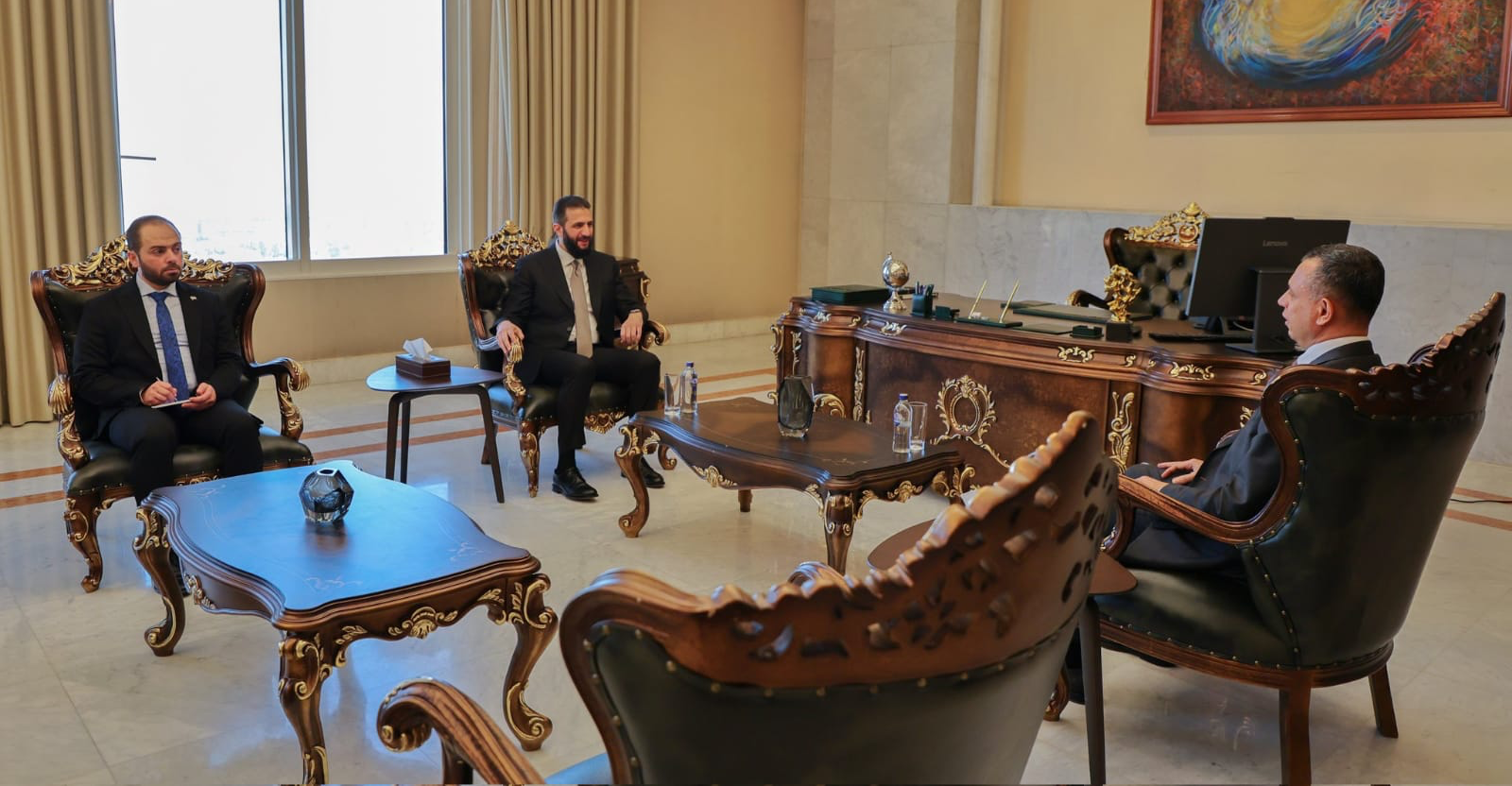
Shafaq News/ An official Iraqi delegation touched down in Damascus on Friday, marking a bold step toward rekindling ties with Syria’s newly minted transitional government under President Ahmad Al-Sharaa.
According to a government statement, the delegation engaged in focused discussions on counter-terrorism cooperation, boosting trade, and restarting oil exports through Mediterranean routes.
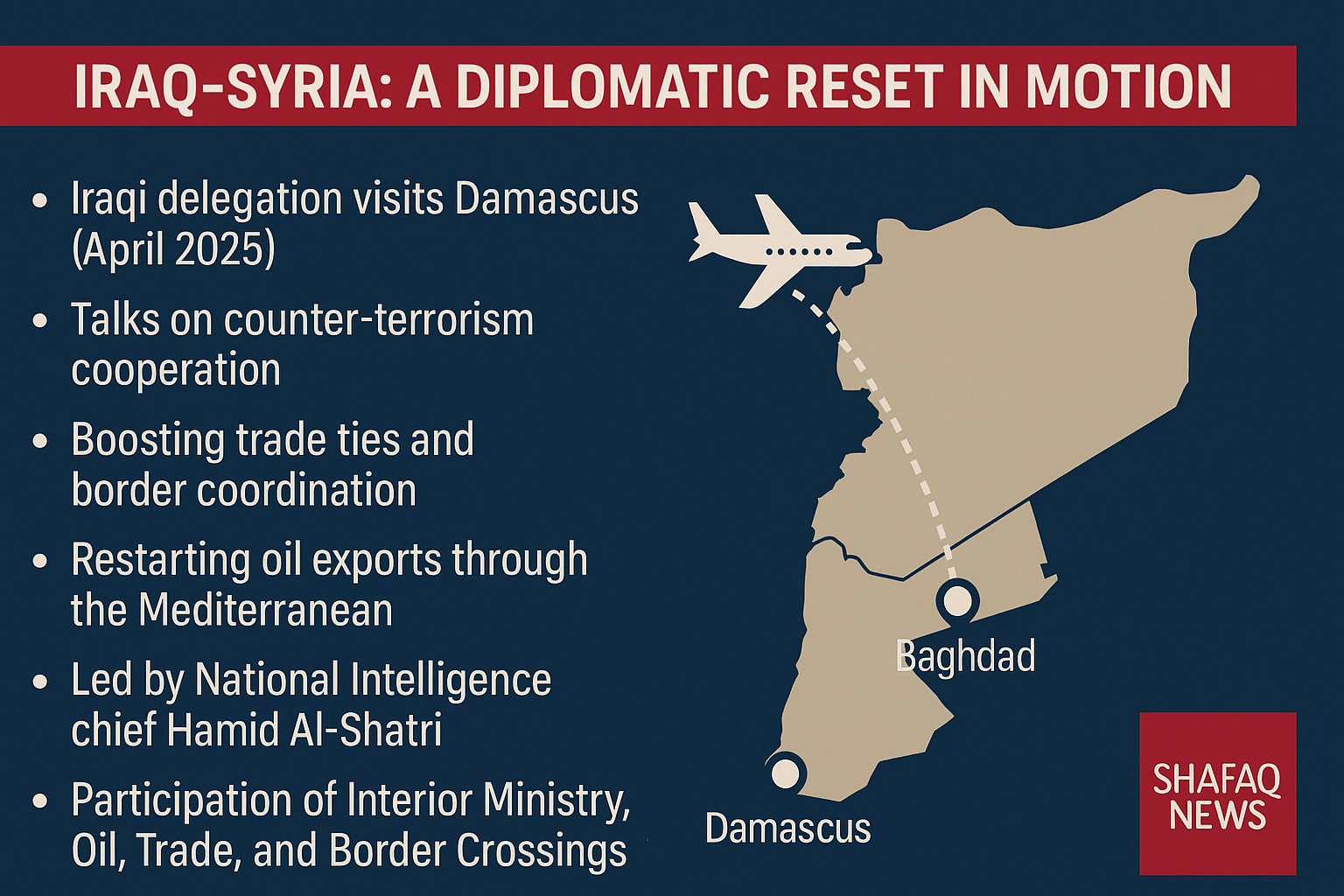
This mission marked Iraq’s second overture to Syria’s new administration and its first since sweeping constitutional reforms brought Al-Sharaa and his cabinet to power. Leading the team was Hamid Al-Shatri, chief of the National Intelligence Service, accompanied by top officials from the Ministry of Interior’s Border Forces Command, as well as representatives from the oil, trade ministries, and border crossings authority.
The visit gained momentum from recent developments, notably Prime Minister Mohammed Shia Al-Sudani’s high-profile meeting with Al-Sharaa in Doha, brokered by Qatar. Baghdad’s invitation for the Syrian president to attend the upcoming Arab League summit in May added further diplomatic weight.
Government spokesperson Basem Al-Awadi described the visit as “highly important,” telling Shafaq News it represents a concrete step toward implementing prior agreements between the two countries. “Baghdad and Damascus are moving toward each other to overcome the past, acting in good faith and with a focus on a more stable and cooperative future,” Al-Awadi said.
Analysts stress the strategic potential of reviving Iraq-Syria relations, arguing that closer ties could fortify regional stability through enhanced cooperation in security, economics, politics, and social affairs. Still, skepticism lingers in Iraq due to Al-Sharaa’s past connections with Al-Qaeda during the height of the post-2003 insurgency.
Bridging a Troubled Past
“The two nations endured long and difficult years of discord, shaped by the former regimes' rivalry,” said Kurdish academic and political analyst Fareed Saadon in comments to Shafaq News.
Saadon argued that restoring ties is now essential. “Syria and Iraq need each other – they share a border, tribal communities, and economic interdependence. Most importantly, they share security and political concerns that could be resolved if Iraq aligns with the new Syrian government,” he said.
He pointed out that Syria, mired in deep crises, urgently needs Arab support—and Iraq, as the eastern gate of the Arab world, is well-positioned to step in. “This could mark a new era of Arab solidarity, particularly with Iraq taking a more central regional role.”
For decades, Iraqi-Syrian relations were marred by enmity, especially during the Baathist era when competing branches of the same party ruled both countries. After the fall of Saddam Hussein in 2003, relations swung between cooperation and hostility, largely driven by Baghdad’s accusations that Damascus enabled militants to cross the border during Iraq’s years of sectarian violence.
The fight against ISIS in 2014 temporarily drew the two closer, but the fall of Al-Assad’s regime and the emergence of a transitional government in Syria disrupted that momentum. Now, recent moves suggest the door is reopening.
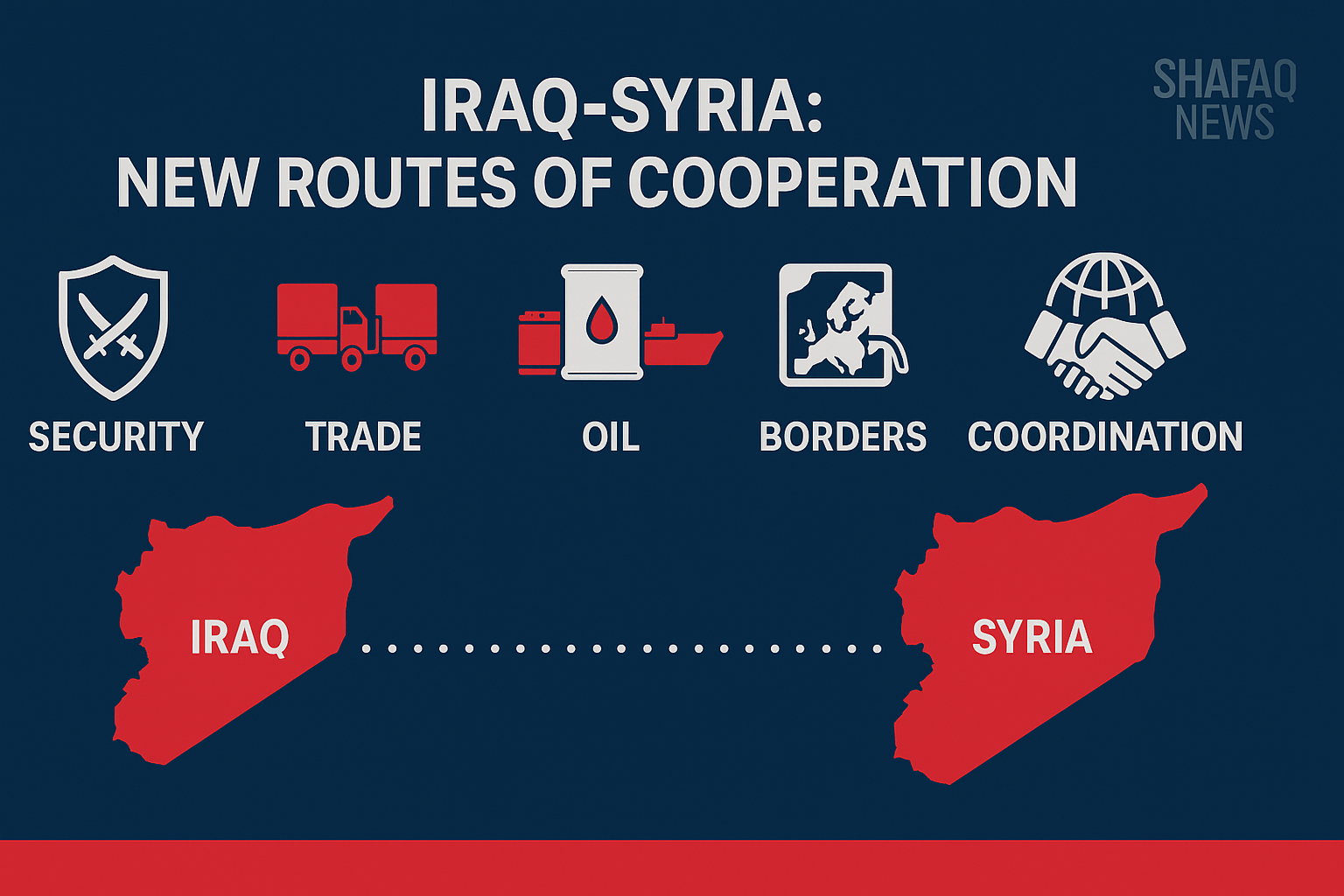
Behind Closed Doors
The rewards of rapprochement are not one-sided. Iraq, too, stands to gain—economically, politically, and socially. Parliamentary foreign relations committee member Mokhtar Al-Mousawi pointed to Iraqi banks, Shiite religious shrines, and diaspora communities in Syria as reasons for Iraq to maintain the connection.
“There are strategic ties between our peoples that cannot be ignored, regardless of who governs Syria,” Al-Mousawi told Shafaq News. He also hinted that the delegation may have carried sensitive messages. “Not everything is revealed publicly. One message could have been informing Al-Sharaa that now is not the right time to attend the Arab Summit in Baghdad,” he said.
Some analysts speculate that Baghdad is also quietly mediating between Damascus and Tehran, carving out a role as a regional bridge-builder in a deeply fractured landscape.
Oil, Geography, and Strategic Realignment
While Al-Sharaa’s attendance at the Arab summit remains uncertain, experts increasingly view Iraq and Syria as two halves of a shared geopolitical puzzle. “The two countries form a single geopolitical unit in the broader balance of regional and international power,” said security expert Ahmed Al-Sharifi.
In remarks to Shafaq News, Al-Sharifi underlined the strategic urgency of reviving the historic Kirkuk-Haditha-Syria-Jordan oil pipeline, first constructed by the British in 1934. Originally split due to colonial rivalries, the pipeline once channeled oil across multiple routes toward the Red Sea.
Al-Sharifi believes resurrecting this route fits into a broader regional vision aligned with Saudi Arabia’s 2001 peace initiative. “This includes a pathway through Syria to the Mediterranean Basin, providing a vital new oil outlet,” he said.
A Region in Flux
The timing of the Iraqi delegation’s visit reflects a cautious but notable shift in the region’s diplomatic winds, shaped in part by ongoing US-Iran nuclear negotiations. Yet experts warn that rebuilding trust and forging a sustainable Iraq-Syria alliance will take time.
Both countries face steep internal challenges and remain vulnerable to shifting regional currents—whether they lead toward de-escalation or fuel new rounds of conflict. However, both Baghdad and Damascus appear ready to move forward.

